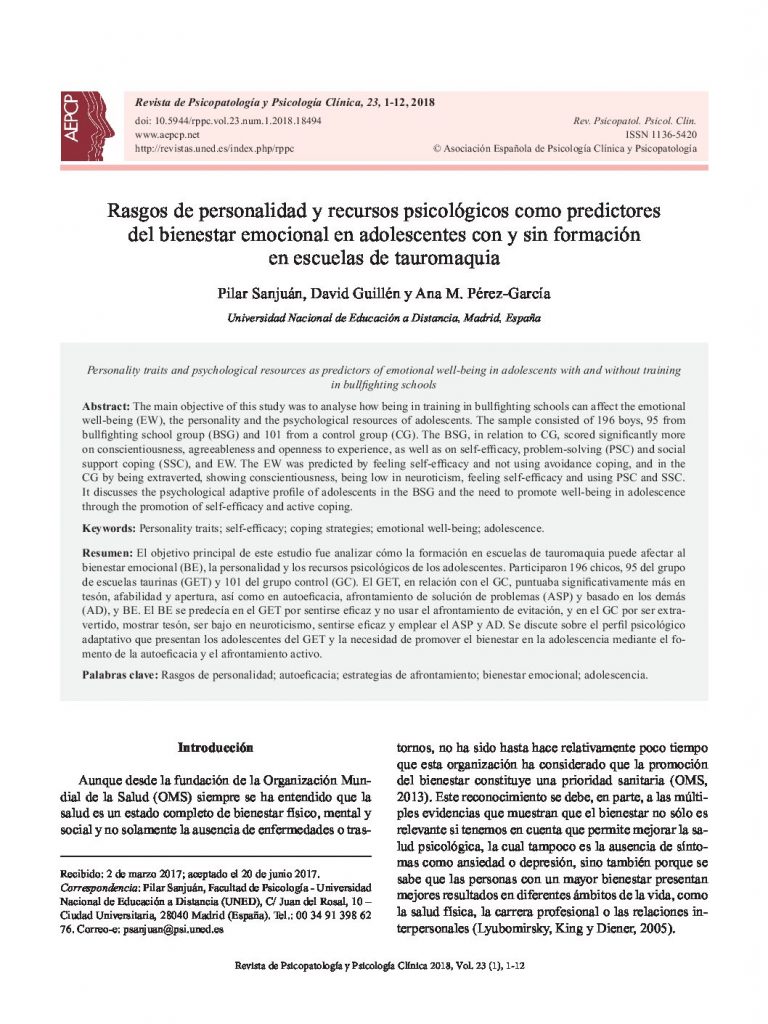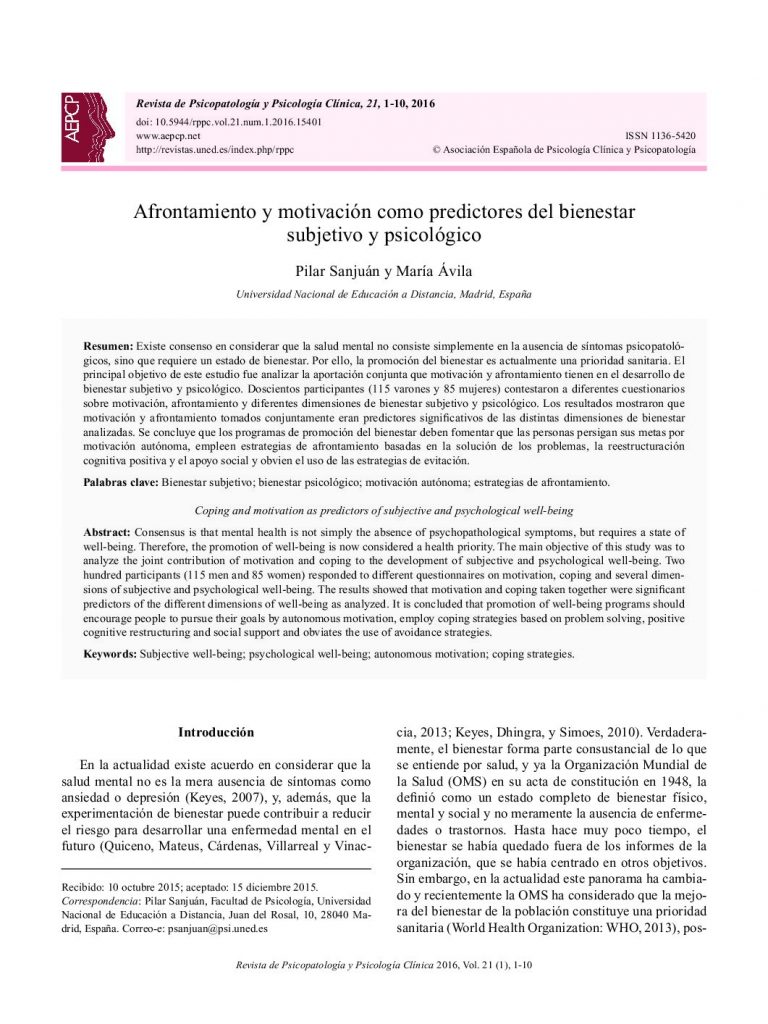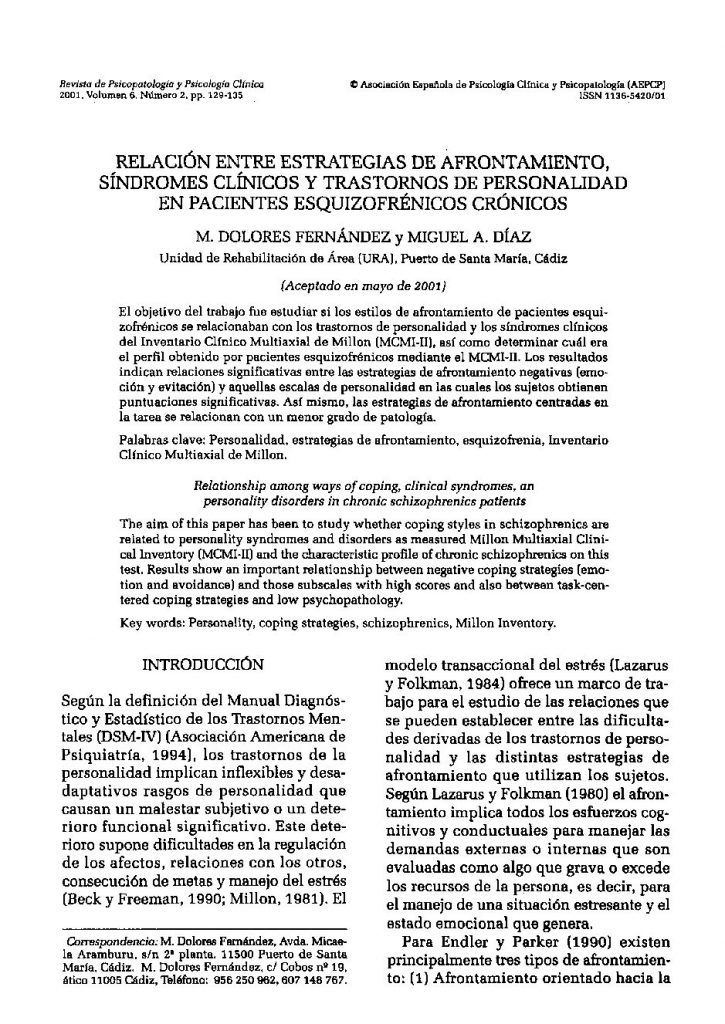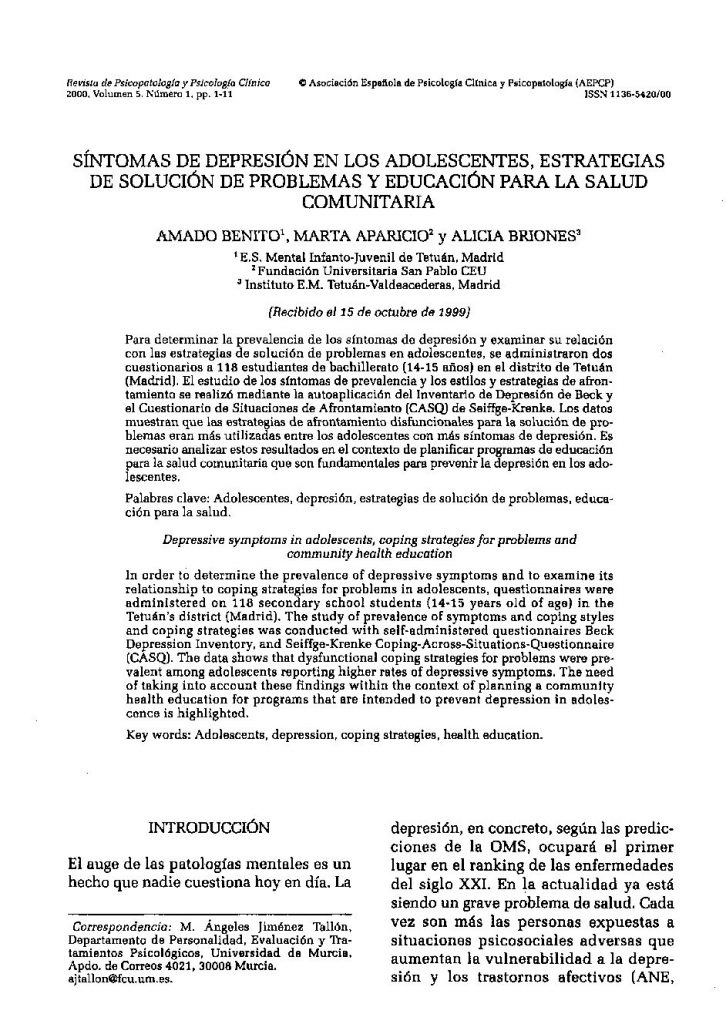Rasgos de personalidad y recursos psicológicos como predictores del bienestar emocional en adolescentes con y sin formación en escuelas de tauromaquia.

- Factores protectores y de riesgo del trastorno de conducta y del trastorno de déficit de atención e hiperactividad. Una revisión sistemática.
- El papel moderador de los estilos parentales en la relación entre la impulsividad y el consumo de alcohol en una muestra de adolescentes españoles.
- Type D personality, lifestyle habits, and cardiovascular disease risk: A mediational model.
- Association of overweight and obesity with psychological problems in school children.
- Adherencia al tratamiento y efectividad de un programa cognitivo conductual sobre la rumiación y expresión de la ira.
- Rasgos de personalidad y recursos psicológicos como predictores del bienestar emocional en adolescentes con y sin formación en escuelas de tauromaquia.
- Jesús Sánchez-Caro (2017). La enferma Teresa de Ávila. Burgos: Grupo Editorial Fonte.
The main objective of this study was to analyse how being in training in bullfighting schools can affect the emotional well-being (EW), the personality and the psychological resources of adolescents. The sample consisted of 196 boys, 95 from bullfighting school group (BSG) and 101 from a control group (CG). The BSG, in relation to CG, scored significantly more on conscientiousness, agreeableness and openness to experience, as well as on self-efficacy, problem-solving (PSC) and social support coping (SSC), and EW. The EW was predicted by feeling self-efficacy and not using avoidance coping, and in the CG by being extraverted, showing conscientiousness, being low in neuroticism, feeling self-efficacy and using PSC and SSC. It discusses the psychological adaptive profile of adolescents in the BSG and the need to promote well-being in adolescence through the promotion of self-efficacy and active coping.
El objetivo principal de este estudio fue analizar cómo la formación en escuelas de tauromaquia puede afectar al bienestar emocional (BE), la personalidad y los recursos psicológicos de los adolescentes. Participaron 196 chicos, 95 del grupo de escuelas taurinas (GET) y 101 del grupo control (GC). El GET, en relación con el GC, puntuaba significativamente más en tesón, afabilidad y apertura, así como en autoeficacia, afrontamiento de solución de problemas (ASP) y basado en los demás (AD), y BE. El BE se predecía en el GET por sentirse eficaz y no usar el afrontamiento de evitación, y en el GC por ser extravertido, mostrar tesón, ser bajo en neuroticismo, sentirse eficaz y emplear el ASP y AD. Se discute sobre el perfil psicológico adaptativo que presentan los adolescentes del GET y la necesidad de promover el bienestar en la adolescencia mediante el fomento de la autoeficacia y el afrontamiento activo.






